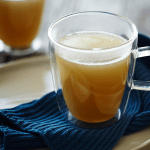Acupuncture may be something you’re considering when it comes to your fertility plans or other health concerns. But for some people it may be considered “Wu-wu” and a load of hogwash. Others it may be completely off their radar and they don’t know what to expect. Others will have had some experience with acupuncture, whether positive or negative and want to know more. Here we’ll debunk some myths about Acupuncture so you have some solid information in mind when you decide whether it will become part of your fertility plan or not.Myth # 1: Acupuncture doesn’t work
There is extensive research studies that have been conducted over decades into Acupuncture, how it works and the benefits. The World Health Organisation acknowledges that Acupuncture is a beneficial health treatment strategy for certain illnesses and conditions and this decision was made based on the research supporting these claims.
Myth # 2: You have to believe in Acupuncture for it to work
The short response is – No.
It is proven, Acupuncture can help or assist recovery of certain health conditions. But that comes about, independent of your beliefs around acupuncture itself.
For Acupuncture to work, the basic requirement is you need to have a human body!
The intricate network of nerves and muscles, the Nervous system and the brain is what enables Acupuncture to work. Inserting acupuncture needles stimulates feedback to the nervous system and brain to initiate the body’s natural healing processes. There is no requirement for you to believe in it to work.
Alternatively, Acupuncture doesn’t claim to treat EVERYTHING either. But then again, neither does medicine or any health profession. Like medicine, Acupuncture, by law is not claiming to completely heal or cure conditions. In Australia, at best, we are allowed to explain Acupuncture as being able to assist or help health conditions to improve. But this begins to become about semantics and the fine print and legal obligations within a practice.
Myth # 3: Acupuncture is “magic”.
Not true. Refer to Myth # 2 & Myth #4.
Myth # 4: Acupuncture is in conflict with my religion
Like meditation, (a practice that doesn’t require you to believe in a particular god or religion for you to experience the benefits) Acupuncture is a non-religious practice.
It is however, a Chinese Practice, and China has a cultural history of several peaks of different belief systems such as Taoism, Buddhism & Confucianism. Although the Traditional Chinese Medicine that is provided in universities today is said to have been influenced and approved by Chairman Mao during the peak of communism (when religion was frowned upon and ultimately prohibited) Chairman Mao wanted to present China as leader in progress to the rest of the world and promoting things that were quintessentially Chinese and patriotic to China, including Chinese Medicine were highlighted. Although Chairman Mao did forever leave his mark on Traditional Chinese Medicine, by selectively dropping certain esoteric aspects of this ancient medicine. Some energetic practices were sacrificed to present Traditional Chinese Medicine as a credible form of medicine and as scientifically as possible to the world.
Also refer to Myth #2 & #3.
Myth # 5: Acupuncture Hurts.
Acupuncture doesn’t have to be a painful process. Yes, the practitioner is inserting needles into your body at specific acupoints, but if they’re professionally trained and registered Acupuncturists, chances are they have spent a LOT of time needling and therefore know what they’re doing and can make it a painless process.
Needling can hurt if:
- Needles are blunt, too thick, poor quality
- The practitioner isn’t professionally trained, doesn’t know what they’re doing
- You move the needle around constantly, pumping it in and out (dry needling technique)
- The practitioner goes too deep
- A muscle is in acute spasm
- You hold your breath.
- The client is anxious, or can’t relax
- A woman is pre-menstrual or menstruating – hormone fluctuations can change a person’s pain tolerance
- It’s done at the extremities – fingertips and toe tips, soles and hands of feet (sometimes required depending on the reason for treatment)
If you have any further questions about acupuncture, I’d be happy to answer them if I can. Please email me at info@springfertility.com.au




